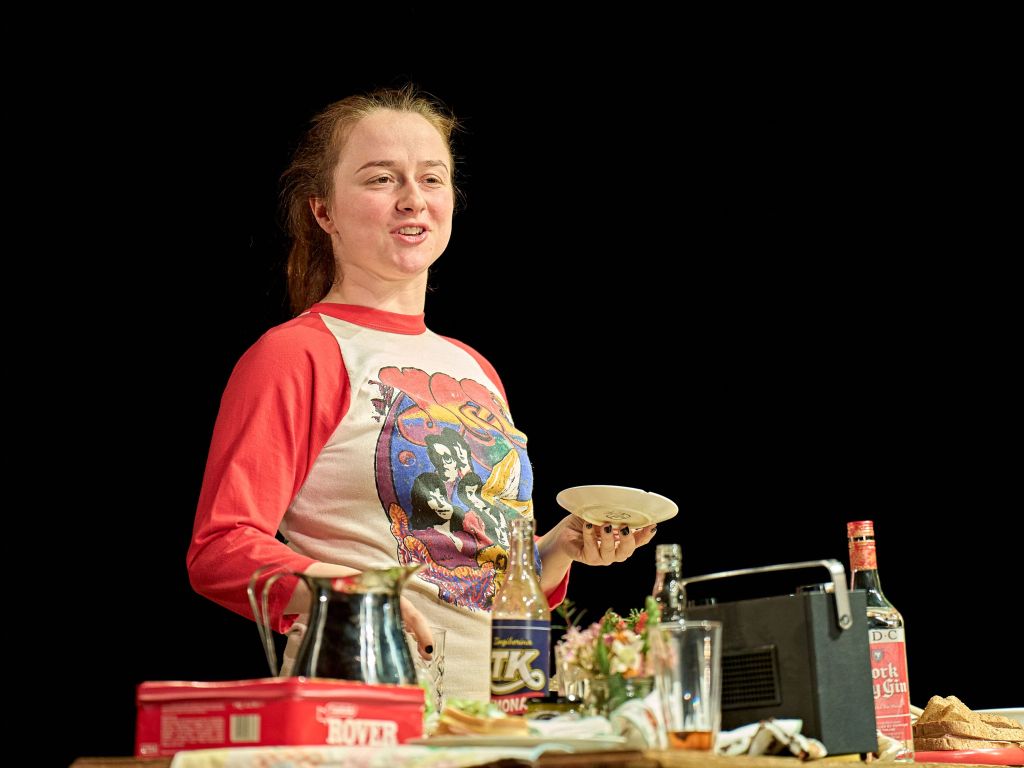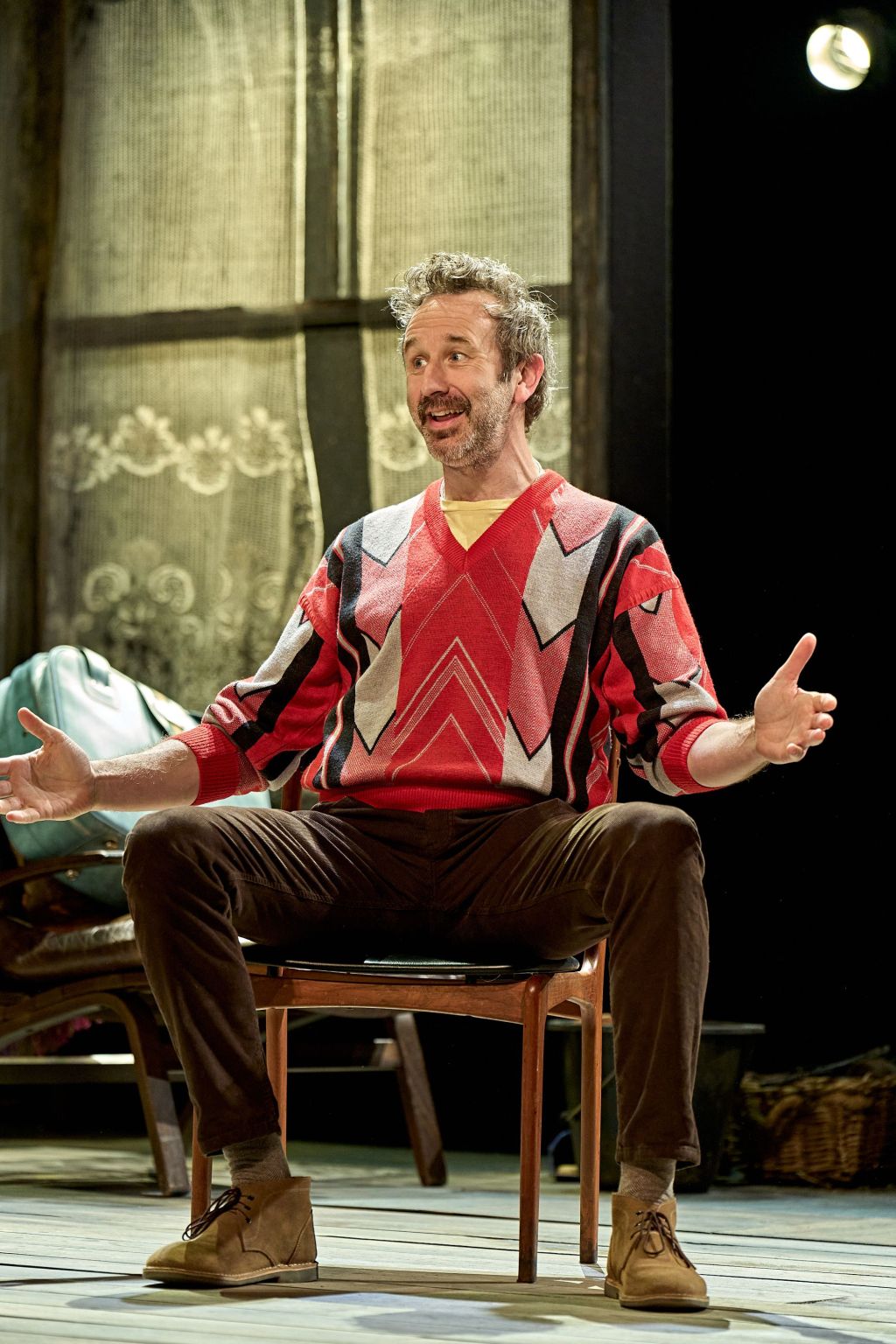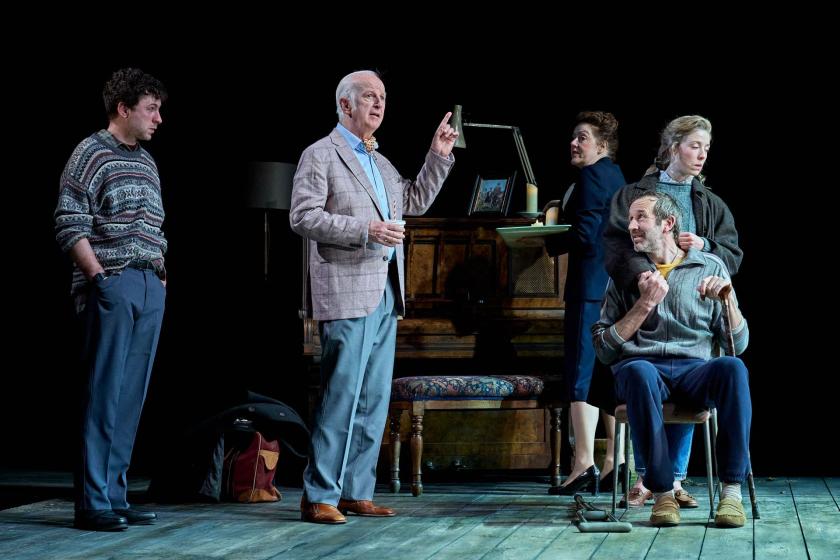It's one thing to be indebted to a playwright, as Tom Stoppard and Harold Pinter have been at different times to Beckett, or Sondheim's latest musical is to Sartre. But Conor McPherson's The Brightening Air – the title itself is derived from Yeats – comes so fully steeped in Chekhov that you may wonder whether this portrait of rural Ireland in 1980s County Sligo hasn't bled into provincial Russia from nearly a century before, or vice-versa.
The protean Irishman's first original play in over a decade, this play can be seen as a response to his starry adaptation of Uncle Vanya, which was on the West End in 2020 as COVID was hitting offering proof at the time that the Irishman had Chekhov on the brain. That play's depiction of unreciprocated passion is here folded into a tale of a home under threat that itself tips a nod towards The Cherry Orchard, whilst a maundering onetime priest (Sean McGinley) incorporates no less a Chekhov enthusiast than Brian Friel into the mix. The difference between the Russian master and his Irish inheritor, though, is a sizeable one. Whereas Chekhov catches life on the wing, plot arising out of situation so that a lot actually happens without one even realising it, The Brightening Air is comparatively bald-faced. You're pulled this way and that by the shifting tensions and alliances amongst the eight characters who come to occupy Rae Smith's utterly gorgeous, shimmering set, but the play feels effortful in a way Chekhov doesn't: look to McPherson's earlier masterwork, The Weir, due for a West End revival later this year, for a seamless blend of the apparently still with the transcendent.
The difference between the Russian master and his Irish inheritor, though, is a sizeable one. Whereas Chekhov catches life on the wing, plot arising out of situation so that a lot actually happens without one even realising it, The Brightening Air is comparatively bald-faced. You're pulled this way and that by the shifting tensions and alliances amongst the eight characters who come to occupy Rae Smith's utterly gorgeous, shimmering set, but the play feels effortful in a way Chekhov doesn't: look to McPherson's earlier masterwork, The Weir, due for a West End revival later this year, for a seamless blend of the apparently still with the transcendent.
This play, too, may require for some a degree of narrative unpacking, and various online clips proffer a family tree that makes for highly agreeable homework. In synopsis, we're shown a family home that has seen better days and that is currently under the care of the brother and sister duo of Stephen (Brian Gleeson, whose father Brendan heads the coming cast of The Weir) and Billie (Rosie Sheehy, pictured above) – the latter bluntly spoken and clearly neurodivergent and given to a hyper-obsession with trains.
Into their midst comes a cavalcade of personages, amongst whom McGinley's Uncle Pierre is the most obvious "character" of the lot. A third sibling, Chris O'Dowd's rangy, volatile Dermot (pictured below), has both a wife (Hannah Morrish) and a 19-year-old girlfriend (Aisling Kearns), while the superb Derbhle Crotty – fondly remembered from many an Irish premiere – cares for the blind (or is he?) Pierre, and has had her own dalliance in the past with Stephen.
 Across four acts, we look on as some of the assemblage gain skill sets that are lost to others, revelations coursing through a "house of retreat" that itself finds room for amorously charged water allowing the mystical and supernatural – two McPherson mainstays – to have their day. Functioning as his own director, the author generously gives each actor a moment to take charge, and one wonders if an outside eye might have reined in the odd authorial indulgence. (Between this and Rob Icke's Manhunt, the conjoining of writer and director seems to be the order of the day.)
Across four acts, we look on as some of the assemblage gain skill sets that are lost to others, revelations coursing through a "house of retreat" that itself finds room for amorously charged water allowing the mystical and supernatural – two McPherson mainstays – to have their day. Functioning as his own director, the author generously gives each actor a moment to take charge, and one wonders if an outside eye might have reined in the odd authorial indulgence. (Between this and Rob Icke's Manhunt, the conjoining of writer and director seems to be the order of the day.)
Amongst a dedicated team of players, Sheehy grabs the star part and runs with it, returning to the venue where her tireless performance in Machinal brought her an Olivier nomination last month. Sheehy, who is Welsh, takes a while to warm up to Billie's Northern Irish accent, though there is never any doubt as to her connection to a character, sullen and rebellious in turn, who is this play's equivalent to Vanya's hard-scrabbling Sonya. (Pierre, in turn, is this play's variant on the ageing professor of the earlier text.)
I can't say I was as moved by The Brightening Air as I had hoped I might be, given McPherson's proven gift for the numinous – a talent very much evident in his acclaimed, Bob Dylan-infused musical Girl From the North Country, which returns to this address next month after multiple airings in both New York and London. But as part of a quartet of work on view in the capital this year, his stage adaptation of The Hunger Games leading the pack in the autumn, it's a reminder of a restless, enquiring talent whose own appetite for the theatre is quite clearly undiminished.













Add comment